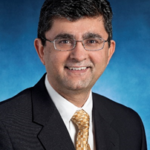Strong emergency care systems based on robust evidence are critical to advancing global health. Every minute counts when a patient is afflicted with a potentially life-threatening symptom or condition, and therefore it might seem daunting to consider conducting research in such acute conditions. But investment in emergency care research will be critical to achieving national and global health targets such as the Sustainable Development Goals, and to ensuring that evidence informs how such research is best conducted as supported by the recent World Health Assembly resolution on emergency care.
Of course conducting research in the context of emergency care involves many unique challenges, especially in low-and middle-income countries (LMICs), including ethical issues, methodological issues around study design, data collection and standardized definitions, a lack of research capacity and difficulty defining and reaching the population of interest. In July 2017, the Center for Global Health Studies (CGHS) at the Fogarty International Center at the National Institutes of Health convened a group of researchers with expertise in emergency care in LMICs to explore pressing research priorities in emergency care in LMICs, as part of the Collaborative for Enhancing Emergency Care Research in LMICs (CLEER). The resulting supplement, “Advancing Emergency Care Research in LMICs,” published yesterday in BMJ Global Health , outlines several recommendations for conducting and investing research in emergency care research and capacity building in LMICs.
As highlighted by the supplement, despite challenges, there are multiple compelling reasons to conduct and invest in emergency care research and research capacity building in LMICs.
- The burden of emergency diseases: Emergency, time sensitive illnesses contribute to the majority of the disease burden in LMICs. According to Chang, et al. 60% of Disability-Adjusted Life Years (DALYS) in LMICs are caused by emergency medical conditions.
- Cost-effectiveness of emergency care interventions: Data on the cost-effectiveness of major public health interventions identified emergency medical interventions as some of the most cost-effective. For example, DCP defined availability of volunteer prehospital care/ambulance services as the second most cost-effective public health intervention.
- Emergency care system are sources of critical public health information: Emergency care systems are cost-effective sources of important data and can help better define the epidemiology for acute diseases such as injuries, myocardial infarctions, cerebrovascular diseases, infections and serve as surveillance systems during epidemics such as Ebola, influenza and Zika. The acute care setting can also serve as a site for clinical trials for acute medical and surgical interventions.
- Effective emergency care systems can serve as settings for public health interventions for difficult- to-reach populations: There are successful examples from high-income countries of the role of emergency care systems in health promotion and disease prevention such as smoking, drug and alcohol dependence, domestic violence, self-harm, hypertension screening and referral, and injury prevention.
- Global health security: The concept of “health security,” or the protection from health threats, has recently been recognized as one of the most critical international security issues – particularly in light of the recent Ebola and Zika virus outbreaks. In response to these increasing global health security concerns, efforts to build capacity in infectious disease and all-hazards disaster preparedness and response among developing and developed countries alike is an urgent priority.
- Need for context-specific interventions in LMICs: Differences in disease profile and patient characteristics in LMICs require that interventions are properly tailored to specific contexts and not automatically transferred from high-income countries to LMICs. For example, early data on resuscitation have highlighted crucial differences in emergency patients in LMICs, which require a different approach to resuscitation. A study by Maitland, et al. showed the harmful effects of implementing fluid resuscitation guidelines developed in the U.S. for treating children in sub-Saharan Africa.
- Global health and development priorities and emergency care: The United Nations Sustainable Development Goals expect countries to achieve ambitious targets to reduce mortality and morbidity due to non-communicable diseases, road traffic injuries, newborn and maternal deaths. These will remain out of reach without strong, evidence-based emergency care systems.
There is a clear public health imperative for advancing emergency care research in LMICs and it is time to move forward with much needed intervention and implementation research in these settings.
Disclaimer: The findings and conclusions in this blog post are those of the author(s) and do not necessarily represent the official position or policy of the US National Institutes of Health or any other institutions with which authors are affiliated.
About the authors:
 Junaid Razzak, MD PhD FACEP, is a tenured Professor of Emergency Medicine and International Health at Johns Hopkins University. Dr. Razzak spent 10 years in Pakistan as the professor and founding chairman of the Department of Emergency Medicine and Director of WHO Collaborating Center for Emergency Medicine and Trauma at the Aga Khan University. He also led the development of Pakistan’s first advanced life support ambulance service.
Junaid Razzak, MD PhD FACEP, is a tenured Professor of Emergency Medicine and International Health at Johns Hopkins University. Dr. Razzak spent 10 years in Pakistan as the professor and founding chairman of the Department of Emergency Medicine and Director of WHO Collaborating Center for Emergency Medicine and Trauma at the Aga Khan University. He also led the development of Pakistan’s first advanced life support ambulance service.
 Nalini Anand, JD MPH, has worked at NIH’s Fogarty International Center since 2002, and is now Director, Division of International Science Policy, Planning and Evaluation and Director, Center for Global Health Studies. In the first of these roles, she manages Fogarty’s policy, planning and program evaluation activities. Second, she directs a global health “think tank” at NIH that serves as a platform for short-term, project-based scholarship in global health science and policy and a forum to convene NIH together with key stakeholders around high-priority global health challenges.
Nalini Anand, JD MPH, has worked at NIH’s Fogarty International Center since 2002, and is now Director, Division of International Science Policy, Planning and Evaluation and Director, Center for Global Health Studies. In the first of these roles, she manages Fogarty’s policy, planning and program evaluation activities. Second, she directs a global health “think tank” at NIH that serves as a platform for short-term, project-based scholarship in global health science and policy and a forum to convene NIH together with key stakeholders around high-priority global health challenges.

Blythe Beecroft, MS, is a Global Health Research & Policy Analyst at the Fogarty International Center at the National Institutes of Health. Within the Center for Global Health Studies her portfolio includes projects covering health research in humanitarian crises, emergency care research in low-and middle-income countries, the integration of HIV/NCD platforms and care, and implementation science in the global context.
Competing Interests: All authors have read and understood the BMJ Group policy on declaration of interests and declare they have nothing to declare.